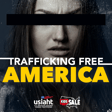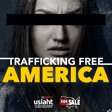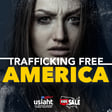
Best Ways to Support Safe Homes | Starting and Supporting a Safe Home - Season 5, Episode 4
The U.S. Institute Against Human Trafficking and Kids Not For Sale presents a special new, 4-part episode titled “Starting and Supporting a Safe Home.” In this season, we sit down with Brandy Cristafulli, the Founder and President of LifeRecaptured, a safe home out of Florida that provides shelter, restoration, and healing for trafficked women throughout the United States.
In this season, Brandy shares with us how she began her safe home, how she runs her safe home, and what she has learned along the way. This is extremely insightful for anyone wanting to end human trafficking in America. We can all be educated on where to assist organizations that help victims of human trafficking, but this dives in even deeper. Whether you are wanting to begin a safe home or simply just support, Brandy provides the proper directions for how to do just that. It goes beyond loving and caring - we must be ready to provide a service that may seem unorthodox to some of us, but helps victims restore their lives.
In this episode, we discuss how hard it is for safe homes to raise enough support (both finances and resources) and how we, as a community, can do a better job to support our local safe homes. We also talk about ways NOT to support a safe home. We may think it’s helpful or a good ideal, but what matters is fulfilling a need that will help these survivors of human trafficking heal and thrive toward restoration.
If you want to become more educated and engaged in the fight to end human trafficking, subscribe to become an Abolitionist at usiaht.org/abolitionist


